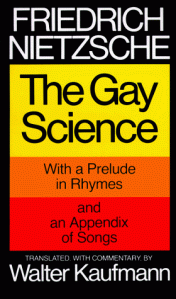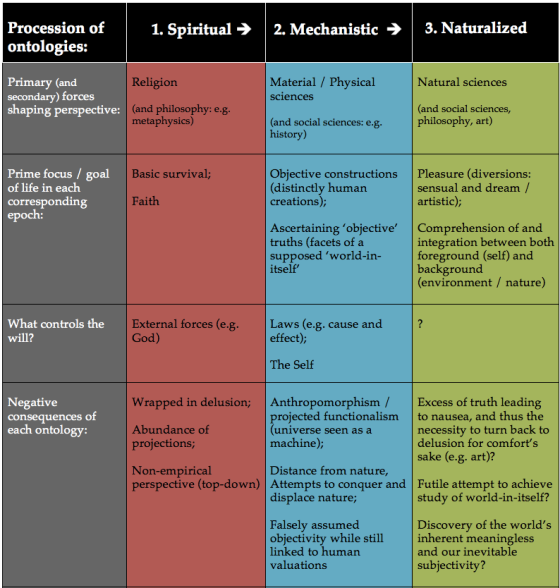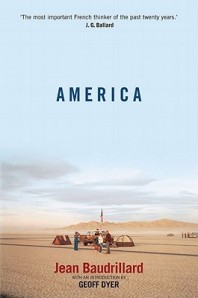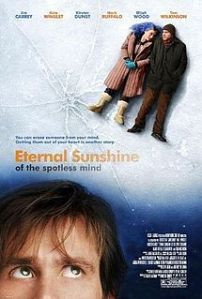Tag Archives: philosophy
Towards a Naturalized Ontology: Jung’s Psychological Assessment of the Receeding of Religious Projections
While Friedrich Nietzsche pronounced the death of God and critically examined the replacement ontology that followed from a philosophical perspective, Carl Jung provided a psychological perspective for the philosophical paradigm shift towards a de-spiritualized ontology. In Jung’s analysis of the shift from religion to science as the most prominent force in explaining the workings of the world, and man’s role in them, he brings into account the psychological notion of projections. Continue reading
Towards a Naturalized Ontology: Nietzsche’s Death of God and Critique of the Mechanistic Perspective that Follows
In this series, starting with Friedrich Nietzsche’s proclamation of God’s death, I’ll examine the shift towards what could be described as a naturalized understanding of the world — an interpretation lacking in both the religious projections of the spiritual era and the lingering anthropocentric projections of the following scientific, or mechanistic, ontology. Drawing from the works of Nietzsche, Jung, and other thinkers I’ll then propose my own analysis of the progression of naturalization, and how it can be arrived at…
‘God is dead’
In order to interpret man’s relationship with the world around him, both in terms of projection and distinction, the monumental shift from the metaphysical, religious perspective to the naturalized perspective should first be charted, including its most significant event: the death of God. Nietzsche wrote in The Gay Science (full text PDF here) that “God is dead,” and we humans are his murderer (GS Sec. 125). “God” in this case isn’t a personal deity but the God of civilization — the defining explanatory force for how the world operates. According to Nietzsche, the death of God leads to the positive effects of allowing solitude, re-valuation of good things due to the decline of morality (GS Sec. 292), and a dismissal of faith, which once aroused nausea (GS Sec. 76). However, the death of God also leads to “metaphysical need” (GS Sec. 151). The death of God is an indication of the receding of the shadow of religion from its reign over human consciousness — that is, the reduction in the use of religious explanations for how the universe operates and our roles in it. Continue reading
Art and Self-Definition
Art is the subjective modification of the empirical world in a media format, typically inspired, as most personal creations are, by a person’s subjective experience in the world. Humans are constantly creating their own proprietary — though interconnected — worlds through a process of information gathering through their senses —> processing such information through thought —> creating a mental framework for action. Art pushes such modification into the physical realm, perhaps even manifesting in forms humans use in a utilitarian manner to make sense of the world, such as language or pictorial representation. Thus, perceptions are channeled into a form of mental representation, even informing the concept of such things as are perceived, like Plato’s idea of Forms. In turn these representations can be imposed upon a format in its physical manifestation, be it a painter’s canvas, a singer’s voice, a story in a magazine… Continue reading
Nietzsche’s Self-Styling, or How to Become an Aesthetic Phenomenon
Friedrich Nietzsche identifies art as a way to gain perspective on our existence and ease existential nausea, writing in Gay Science 107 (full text available here), “As an aesthetic phenomenon existence is still bearable to us,” creating a front between us and the “nausea and suicide” we realize due to honesty. Honesty (and thus nausea) finds its source in the realization of the inherent meaninglessness of the world of appearances as its witnessed through science and empirical observation — the naturalized perspective Nietzsche argued for throughout his work — instead of a religious lens. Nietzsche’s human is “filled with Dionysian joy and pride in his own artistry,” because without intrinsic order he is led to “the absence of a designing god [leading in turn] to a heightened joy in the artistic possibility of man” (Nussbaum 58). Art helps to bridge the gap between the role of religious order and the chaos that comes once the order is revealed as a delusion (see: “God is dead”); however, the art cannot just exist for its own sake. Art — the right kind of art — and an adaptation of its techniques in the creation of our own identities allows some room for optimism about the human condition because it permits us to create meaning.

An issue remains: Exactly how can we make ourselves into an “aesthetic phenomenon,” as Nietzsche writes in GS 107? The primary solution is self-styling: the use of artistic techniques to craft the self. To make the world, including the self, into an aesthetic phenomenon, not just must the techniques of artists must be copied, but their effects must be integrated into the self as well. Thus, not just the world but the self must be made aesthetic (Young 99). Artistic means are able to achieve this through self-styling, which allows self-deception and artistic perspective, countering honesty and meaninglessness.
Why We (Still) Need Philosophy
Philosophy. Noun
|
What’s Wrong With Philosophy Today? The Source of Irrelevance
Contemporary academic philosophy today, at least in the English-speaking world, is too rooted in idealism, and removed from the experiential, removed from real world problems, too fixated upon studying issues so far removed from our own lives and social issues that we fail to take it seriously. For those reasons, academic philosophy is on the decline. Ever since the material sciences seemingly removed philosophy’s relevance to understanding the physical reality humans inhabited, we’ve drifted away from seeing philosophy as a relevant way to grapple with issues in our world: instead we turn to the social and natural sciences, and, in cases that strike us as more perplexing, religion. Over the past few centuries, Western intellectuals have adopted a scientific, empirical view of the world, seemingly stripped of ideological perspective, or so they reasoned. All the while, philosophy in America and Britain shifted toward the Analytic camp, toward grappling with notions of logic and language, a more ‘meta’ view of intellectual constructs, and the discipline of philosophy’s influence on non-academic life fell by the wayside. A key process encouraging this development was the divide between Analytic and Continental philosophy, the former of which predominates in universities in Anglophone countries, and is more concerned with logical problems than tackling grand profundity of human experience and the issues surrounding it. Today, we need philosophy (less so from the Analytic tradition) more than ever as a guide through which we can interpret what science and direct experience tells us, as well as comprehend the essentially value laden nature of those experiences and empirical structures. The former more significantly, we must have a framework through which we can understand varying ontological perspectives and act accordingly with our own value systems. Integrating a more philosophically rigorous approach to decision-making, whether at a personal or societal level, requires not only allowing for philosophical education, but also bringing philosophy down from its ivory tower and away from the almost pointless goals its found itself entrenched in (my bias against fields such as philosophy of language is clearly showing here, and let it do so).
Review: “America” by Jean Baudrillard
I’m a big Jean Baudrillard fan: Simulacra and Simulation, which I’ll be writing an essay on soon (tying his notion of hyper-reality to our modern mass media fixated and technocentric culture), is one of my all time favorite works of modern philosophy. I’m also a big fan of travelling, so when I spied Baudrillard’s slim tome America, I figured I might as well check it out. While I didn’t especially love the book, it was an interesting (and fairly easy) read. As I sit here in very rural Northern Florida taking in yet another slice of my home country, I can’t help but view the surrounding culture as an amateur anthropologist might, and the surrounding ecosystem as an amateur biologist might. But how can I satisfy my inner philosopher? Baudrillard obviously ran into the same wall. Anyway, below is my review of America the book, which is Baurillard’s review of America the country.
Eternal Sunshine of the Philosophical Film
Below is the edited version of an essay I wrote this year for a Philosophy of Film course at my college. The books cited are Thinking on Screen: Film As Philosophy by Thomas Wartenberg, New Philosophies of Film: Thinking Images by Robert Sinnerbrink, and the Deleuze-inspired Filmosophy by Daniel Frampton. Both offer some good perspective on the philosophy of film, albeit diverging in the fact that Wartenberg’s account takes a far more ananalytical approach, and his analysis of Eternal Sunshine of the Spotless Mind doesn’t make much sense (his chapter on The Matrix is spot on though). A few years ago, actually before I took classes on Aesthetics and Philosophy of Film from Prof. Paul Loeb, I considered movies and television to be purely within the realm of entertainment. While I’m still convinced that written texts are the best way for me to access and relay philosophical ideas, movies do offer an interesting, viscerally engaging means by which such ideas can be both probed through use of audiovisual effects, narrative plot, and objects within the film, sparking at the very least an interest, and at the most offering an argument and comprehensive exploration. Possibly the most interesting aspect of movies are their ability to capture ineffable elements of human experience language cannot describe, in a manner stripped of the phenomenological associations we generally have as the background of our direct experience, as Deleuze argues. Films are stripped down to the foreground, and in such a way provide an even purer sensory input than our real lives, though lacking integration with our senses of touch and smell.
The Michel Gondry / Charlie Kaufman collaboration Eternal Sunshine of the Spotless Mind provides a good example of the possibility of presenting philosophical concepts in a fictional feature film. This paper will show how Eternal Sunshine’s content supports ideas advanced by Wartenberg and Sinnerbrink that while films don’t explicitly present philosophical arguments as books do, they explore them in a unique way capturing the ineffability of human experience. Continue reading


